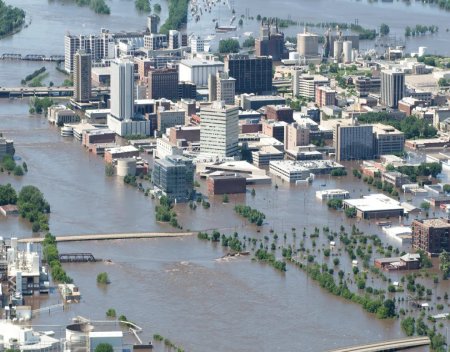
Does How My Home Was Built Affect My Flood Insurance Rates?
Flood insurance is one of the smartest investments you can make to protect your home, especially as unpredictable weather and severe storms become more common. But not all flood insurance policies are the same, and finding the best one for your specific needs takes a little research and comparison. Whether you’re a homeowner, renter, or landlord, here’s how to find the right flood insurance policy for you.
Before you compare policies, it’s important to know your property’s level of flood risk. Visit FloodSmart.gov or use FEMA’s Flood Map Service Center to check your flood zone. You’ll find out whether you’re in a high-, moderate-, or low-risk area, which can affect:
Your insurance rates
Whether flood insurance is required (especially for mortgages)
The amount of coverage you might need
Keep in mind that flooding can happen anywhere—not just in high-risk zones.
Flood insurance typically comes with two types of coverage:
Building property coverage (up to $250,000 through the NFIP)
Personal property coverage (up to $100,000 through the NFIP)
This includes structural damage, systems like HVAC and electrical, and personal belongings—but there are exclusions. For example, basement coverage is limited, and temporary living expenses are not included in NFIP policies.
If you need broader protection, look into private flood insurance, which often offers:
Higher coverage limits
Replacement cost for personal belongings
Additional living expenses
Better basement coverage
You can buy flood insurance through:
The National Flood Insurance Program (NFIP), managed by FEMA and sold through local agents
Private insurers, who may offer more flexible or cost-effective plans
NFIP pros:
Backed by the government
Standardized pricing
Widely available
Private insurer pros:
Higher and more customizable coverage limits
Potentially lower premiums for low-risk homes
Faster underwriting and fewer restrictions
Get quotes from both sources, and compare what’s covered, the policy limits, deductibles, exclusions, and waiting periods.
Flood insurance policies typically let you choose separate deductibles for your building and contents coverage. Higher deductibles will lower your premiums, but also increase your out-of-pocket costs if you file a claim. Choose deductibles based on your risk tolerance and budget.
If you already have homeowners or renters insurance, ask your provider if they also offer flood insurance or can connect you with a trusted partner. Even better, work with an independent insurance agent who can:
Shop policies from multiple providers
Offer tailored recommendations
Help you understand fine print and policy limitations
Independent agents can also help you understand how FEMA’s Risk Rating 2.0 pricing system affects your premiums.
Flood risks can change. So can coverage options. Review your policy every year to make sure:
Your coverage limits still reflect your home’s value
Your flood zone hasn’t changed
You’re not overpaying or underinsured
If you've renovated or added square footage to your home, update your policy accordingly.
Finding the best flood insurance policy isn’t just about choosing the cheapest option—it’s about getting the right protection for your home, your belongings, and your peace of mind. Take the time to evaluate your risk, compare providers, and ask the right questions. A well-chosen policy can save you thousands—and help you recover faster when the unexpected happens.
I have known Tim for many years and he is a man with great integrity, work ethic and one of the nicest persons I know. Over the years Tim has provided insurance counseling and advice to our company, for myself personally, as well as to our clients. Recently Tim, took time to analyze our flood insurance policy and he was able to make some excellent recommendations. Our flood insurance costs are now less and we have much better coverage. I recommend Tim to anyone without hesitation or reservation.
I have no problem giving you an A1 reference for taking care of the flood policies for me and Diane. I appreciate you working with the mortgage company: the surveyor and our previous agent. The result was a 75% reduction in our flood insurance premiums!
We contacted Mr. Holt for an estimate via email over the weekend prior to a closing on a property, hoping for a response on the following Monday to take with us with confidence in being insured at the settlement table on a Tuesday. He exceeded our expectations not once but in readily responding to the initial request and then to follow-up questions all during the weekend frenzy that occurs before closing. "Impressive and responsive customer service," for sure!